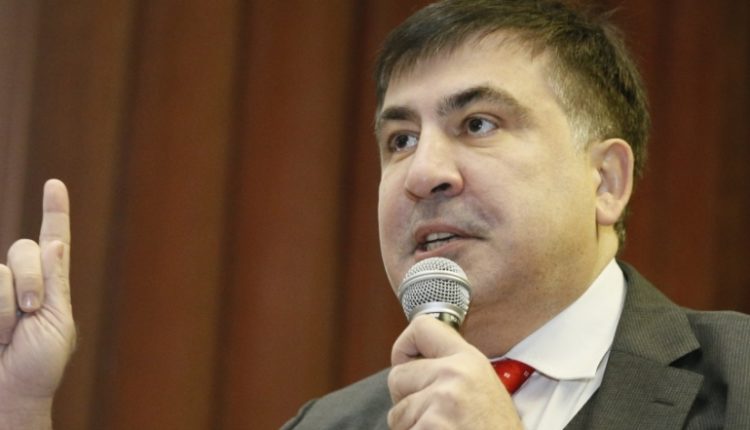Former Georgian President Mikheil Saakashvili has agreed to end a 50-day hunger strike in prison that had raised political tensions in the former Soviet republic and drawn expressions of concern from the United States.
Saakashvili agreed to end his protest on Friday after authorities offered to move him to a military hospital from a prison hospital where an independent rights commissioner had said he was being abused by fellow inmates and not receiving appropriate medical treatment.
On Thursday, Saakashvili fainted and doctors had urged authorities to move him to a regular clinic, saying his life was in danger.
Reuters TV footage showed a convoy including two ambulances departing late on Friday from the prison where Saakashvili, 53, had been held in the capital Tbilisi, en route to the military hospital in the town of Gori.
In a statement quoted by the Sputnik Georgia news service, the former president said he would resume eating after the transfer but would never accept his “illegal detention”.
His personal doctor, Nokoloz Kipshidze, said “[Former] president Saakashvili formally called off his hunger strike right after he was transferred to the Gori military hospital”.
“He still is in a life-threatening condition and was placed in an intensive care ward,” Kipshidze told AFP news agency, adding that Saakashvili’s “re-feeding will begin later on Saturday”.
Saakashvili was arrested on October 1 after returning from exile to rally the opposition on the eve of local elections. He faces six years in prison after being convicted in absentia in 2018 of abusing his office during his 2004-2013 presidency, charges he rejects as politically motivated.
Georgia’s human rights commissioner said on Wednesday that Saakashvili needed to be moved to intensive care to avoid the risk of heart failure, internal bleeding and coma after more than a month and a half on hunger strike.
Until Friday, he had insisted on being transferred to a civilian hospital.
Last week, the European Court of Human Rights ruled that Georgia must ensure Saakashvili’s “safety in prison, and to provide him with appropriate medical care for the post-hunger-strike recovery period”.
Saakashvili was moved last week to a prison hospital where, Amnesty International said, he had been “denied dignity” as well as adequate care.
The rights group on Twitter described it as “selective justice” and “apparent political revenge”.
Saakashvili has said he was assaulted by prison guards and that he feared for his life.
Saakashvili took power via a peaceful “Rose Revolution” in 2003 until 2013 and carried out pro-Western reforms during his term but led Georgia into a disastrous war with Russia.
He left the country after his second and last term expired and had since lived in exile in Ukraine, where he headed a government agency steering reforms.
His case has drawn thousands of his supporters onto the streets in recent weeks.
Georgia President Salome Zourabichvili has said Saakashvili will not be pardoned. The US on Thursday urged Georgia to treat him “fairly and with dignity” and it was closely following his situation.
“I will never accept my illegal imprisonment,” Saakashvili said on Facebook Friday evening, adding that he was ready to “appear before a fair trial and accept any verdict it delivers”.
As soon as I am set free, I’ll join you – as equal among equals – in rebuilding our country,” Saakashvili wrote in an address to the nation.
He thanked Georgians for the “unbelievable show of solidarity and humanity” and called for a campaign “to liberate the country” from the rule of oligarch Bidzina Ivanishvili’s Georgian Dream party.
“I believe in our victory as never before.” Aljazeera


Comments are closed.